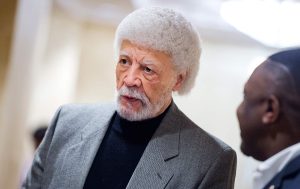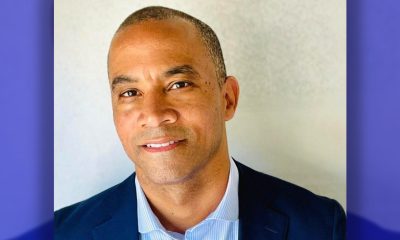Business
Microsoft Sheds Some of its Ad Business, Mapping Service
BRANDON BAILEY, AP Technology Writer
SAN FRANCISCO (AP) — Microsoft is handing off some its digital advertising business to AOL and selling its street-image mapping operation to Uber, as the giant software company tries to focus on activities more relevant to its core business.
AOL, meanwhile, is adopting Microsoft’s Bing search engine, replacing Google as the default option for visitors who want to search the Internet on AOL websites. That means Microsoft will get a share of revenue from advertising that’s tied directly to Internet searches performed on AOL.
But Microsoft, which is based in Redmond, Washington, will let AOL take over the selling of other types of advertising on Microsoft websites and apps, including MSN, Skype and Xbox. An AOL Inc. spokeswoman said the New York-based online media company will extend job offers to all 1,200 people who worked in Microsoft’s advertising business.
Microsoft Corp. CEO Satya Nadella has been saying he wants to focus more on the company’s core software business and related services, while warning employees of the need to “make some tough choices in areas where things are not working.” Microsoft representatives indicated Monday that both the AOL and Uber deals are an outgrowth of that strategy.
Under its agreement with AOL, Microsoft is unloading a business that’s declined in importance over recent years. Microsoft has steadily increased its sale of advertising related to searches on Bing. But revenue from other kinds of advertising, known as “display ads,” had fallen to about $250 million in the last quarter, or about 15 percent of all Microsoft ad revenue, according to figures compiled by industry analyst Jan Dawson of Jackdaw Research.
“Display advertising is a tough business for them. Search is more lucrative,” Dawson said.
Microsoft and AOL declined to reveal details of how they will share revenue from the new pact. Both companies characterized the deal as a win-win because Microsoft will gain more search advertising while AOL, which has been beefing up its display business, will now add Microsoft’s websites to a host of other online properties where AOL can place messages for advertising clients.
Uber, meanwhile, has been investing in developing its own street-navigation technology. The San Francisco-based ride-hailing service is acquiring a small unit of Microsoft that collected visual images of streets and buildings for Microsoft’s Bing Maps service. Microsoft indicated it will rely on other companies to supply it with that data in the future.
“They’re becoming more and more focused on the things that are working well, and jettisoning things that aren’t working well,” Dawson said.
Copyright 2015 The Associated Press. All rights reserved. This material may not be published, broadcast, rewritten or redistributed.
Activism
Oakland Post: Week of May 28 – June 30, 2025
The printed Weekly Edition of the Oakland Post: Week of May 28 – June 3, 2025

To enlarge your view of this issue, use the slider, magnifying glass icon or full page icon in the lower right corner of the browser window.
Activism
Oakland Post: Week of May 21 – 27, 2025
The printed Weekly Edition of the Oakland Post: Week of May 21 – 27, 2025

To enlarge your view of this issue, use the slider, magnifying glass icon or full page icon in the lower right corner of the browser window.
Activism
OPINION: Your Voice and Vote Impact the Quality of Your Health Care
One of the most dangerous developments we’re seeing now? Deep federal cuts are being proposed to Medicaid, the life-saving health insurance program that covers nearly 80 million lower-income individuals nationwide. That is approximately 15 million Californians and about 1 million of the state’s nearly 3 million Black Californians who are at risk of losing their healthcare.

By Rhonda M. Smith, Special to California Black Media Partners
Shortly after last year’s election, I hopped into a Lyft and struck up a conversation with the driver. As we talked, the topic inevitably turned to politics. He confidently told me that he didn’t vote — not because he supported Donald Trump, but because he didn’t like Kamala Harris’ résumé. When I asked what exactly he didn’t like, he couldn’t specifically articulate his dislike or point to anything specific. In his words, he “just didn’t like her résumé.”
That moment really hit hard for me. As a Black woman, I’ve lived through enough election cycles to recognize how often uncertainty, misinformation, or political apathy keep people from voting, especially Black voters whose voices are historically left out of the conversation and whose health, economic security, and opportunities are directly impacted by the individual elected to office, and the legislative branches and political parties that push forth their agenda.
That conversation with the Lyft driver reflects a troubling surge in fear-driven politics across our country. We’ve seen White House executive orders gut federal programs meant to help our most vulnerable populations and policies that systematically exclude or harm Black and underserved communities.
One of the most dangerous developments we’re seeing now? Deep federal cuts are being proposed to Medicaid, the life-saving health insurance program that covers nearly 80 million lower-income individuals nationwide. That is approximately 15 million Californians and about 1 million of the state’s nearly 3 million Black Californians who are at risk of losing their healthcare.
Medicaid, called Medi-Cal in California, doesn’t just cover care. It protects individuals and families from medical debt, keeps rural hospitals open, creates jobs, and helps our communities thrive. Simply put; Medicaid is a lifeline for 1 in 5 Black Americans. For many, it’s the only thing standing between them and a medical emergency they can’t afford, especially with the skyrocketing costs of health care. The proposed cuts mean up to 7.2 million Black Americans could lose their healthcare coverage, making it harder for them to receive timely, life-saving care. Cuts to Medicaid would also result in fewer prenatal visits, delayed cancer screenings, unfilled prescriptions, and closures of community clinics. When healthcare is inaccessible or unaffordable, it doesn’t just harm individuals, it weakens entire communities and widens inequities.
The reality is Black Americans already face disproportionately higher rates of poorer health outcomes. Our life expectancy is nearly five years shorter in comparison to White Americans. Black pregnant people are 3.6 times more likely to die during pregnancy or postpartum than their white counterparts.
These policies don’t happen in a vacuum. They are determined by who holds power and who shows up to vote. Showing up amplifies our voices. Taking action and exercising our right to vote is how we express our power.
I urge you to start today. Call your representatives, on both sides of the aisle, and demand they protect Medicaid (Medi-Cal), the Affordable Care Act (Covered CA), and access to food assistance programs, maternal health resources, mental health services, and protect our basic freedoms and human rights. Stay informed, talk to your neighbors and register to vote.
About the Author
Rhonda M. Smith is the Executive Director of the California Black Health Network, a statewide nonprofit dedicated to advancing health equity for all Black Californians.
-

 #NNPA BlackPress3 weeks ago
#NNPA BlackPress3 weeks agoMLK Bust Quietly Removed from Oval Office Under Trump
-

 Activism4 weeks ago
Activism4 weeks agoOakland Post: Week of April 30 – May 6, 2025
-

 Activism3 weeks ago
Activism3 weeks agoOakland Post: Week of May 7 – 13, 2025
-

 Activism2 weeks ago
Activism2 weeks agoNew Oakland Moving Forward
-

 Activism2 weeks ago
Activism2 weeks agoAfter Two Decades, Oakland Unified Will Finally Regain Local Control
-

 #NNPA BlackPress3 weeks ago
#NNPA BlackPress3 weeks agoTrump Abruptly Fires First Carla Hayden: The First Black Woman to Serve as Librarian of Congress
-

 Activism2 weeks ago
Activism2 weeks agoOakland Post: Week of May 14 – 20, 2025
-

 Alameda County2 weeks ago
Alameda County2 weeks agoOakland Begins Month-Long Closure on Largest Homeless Encampment




















































